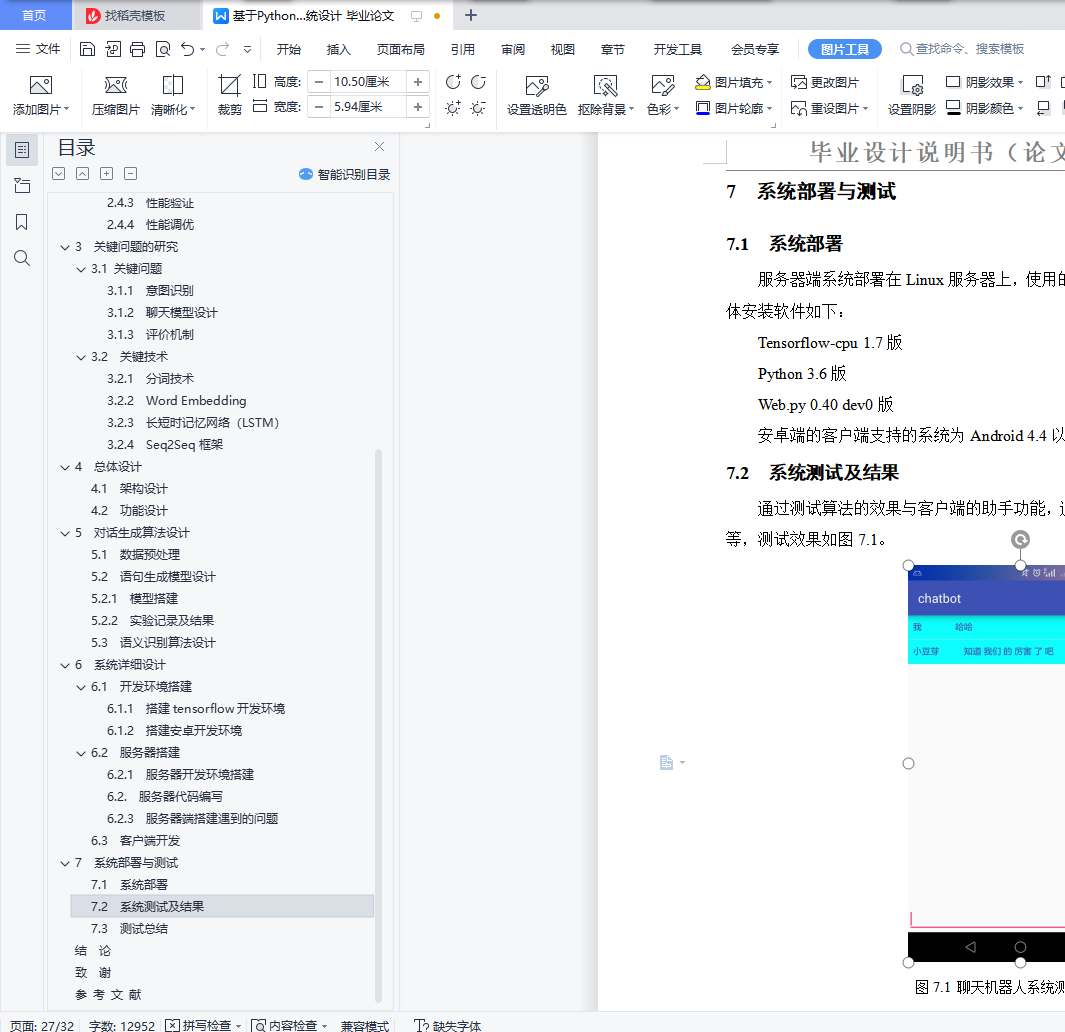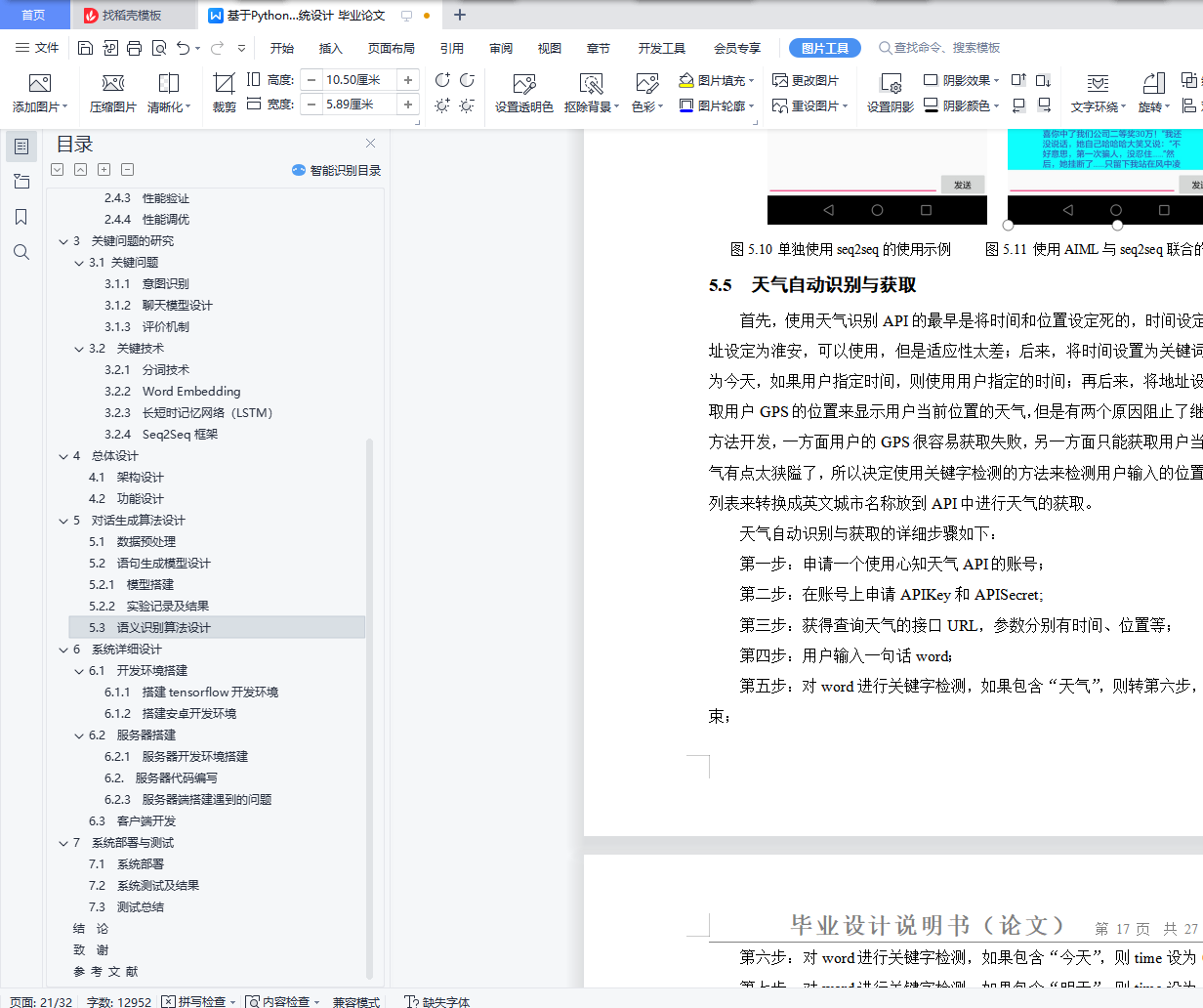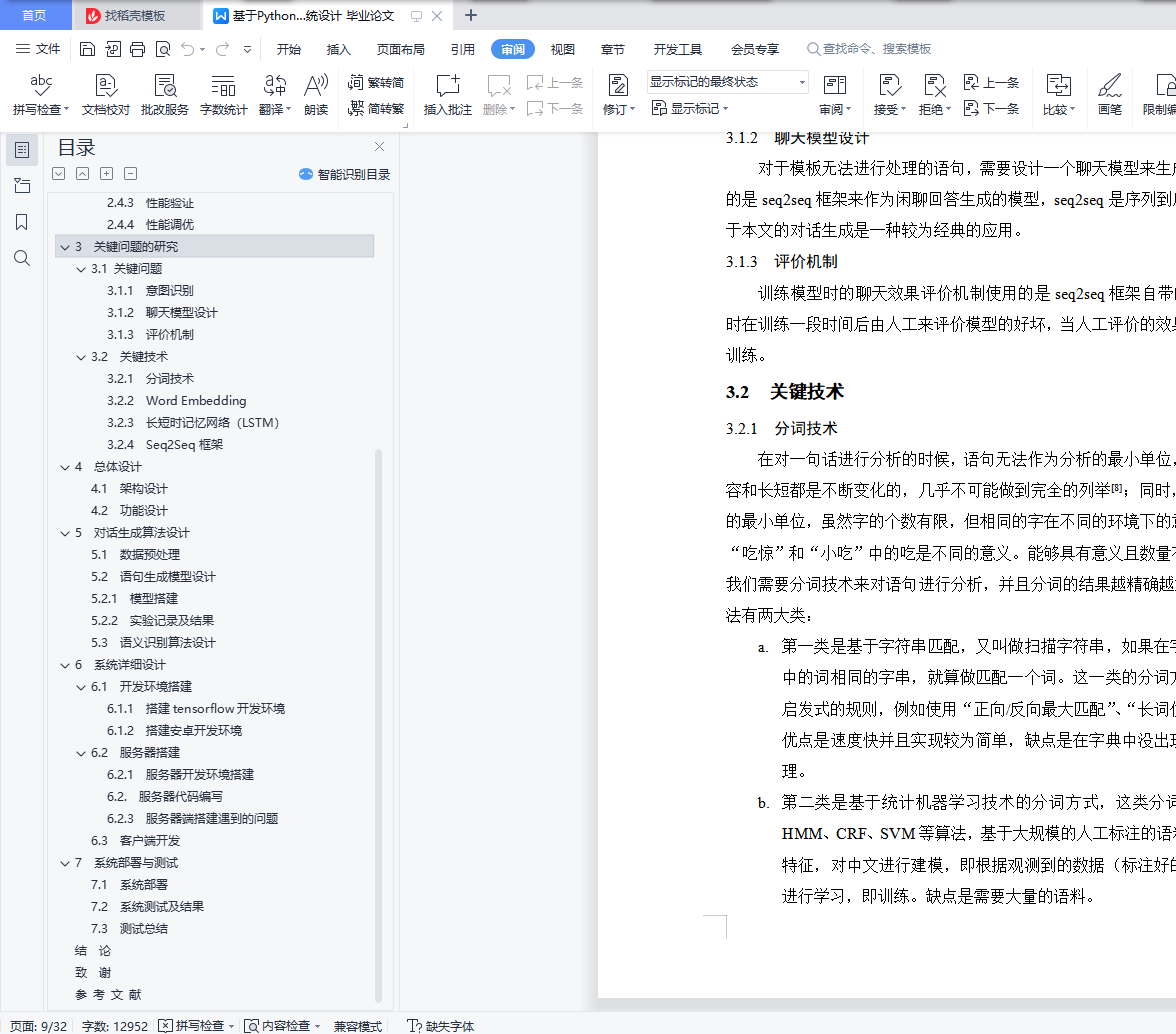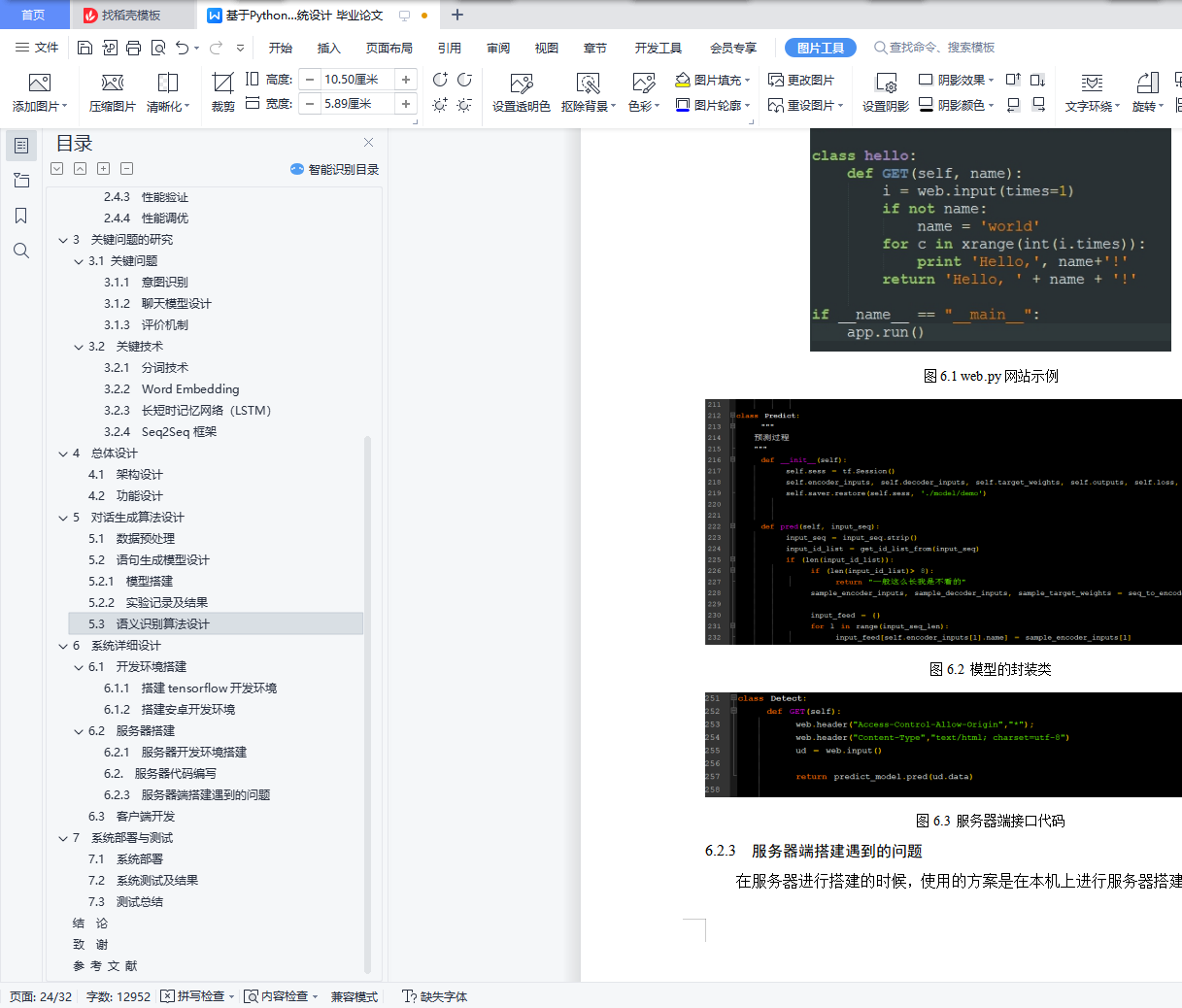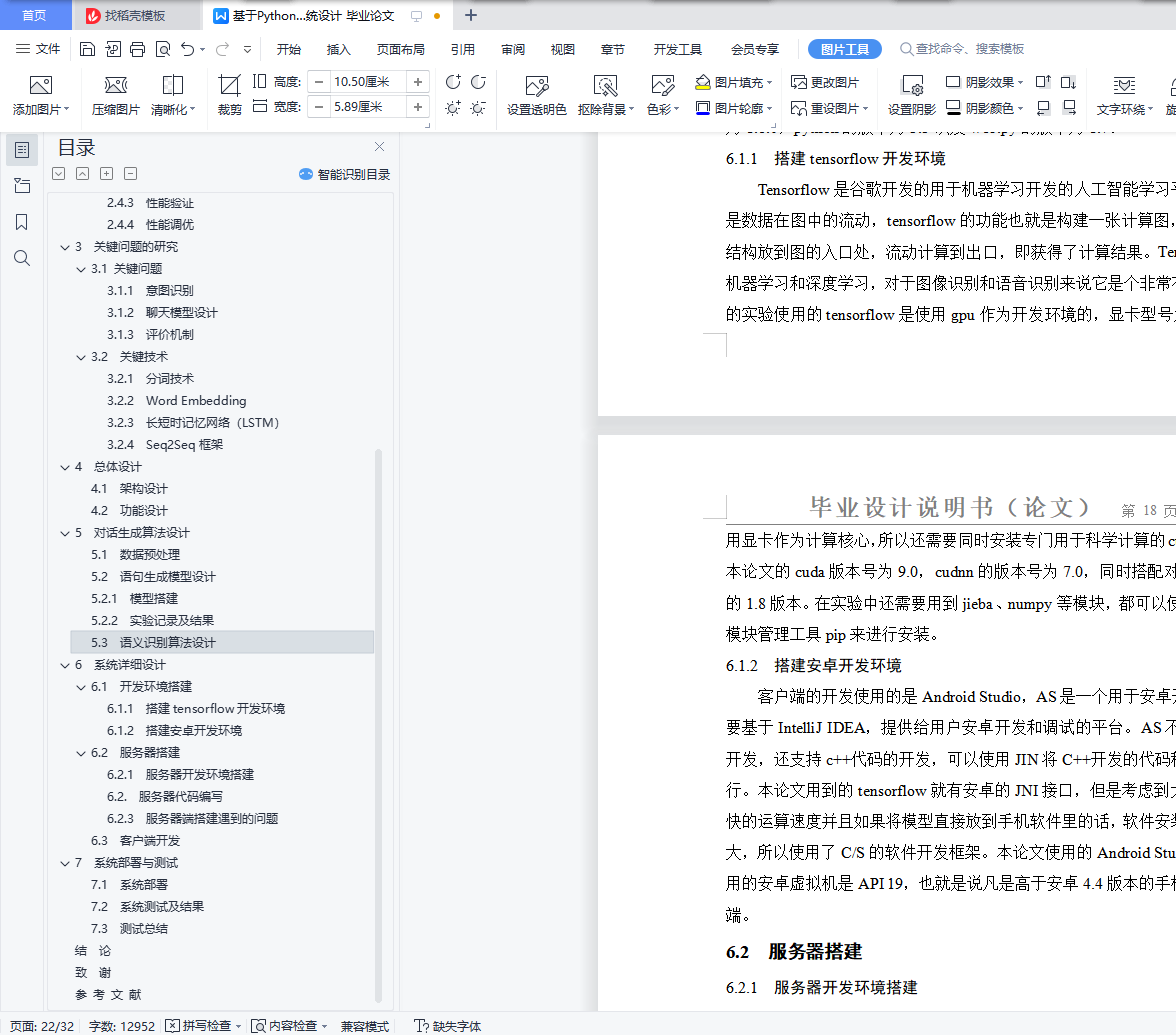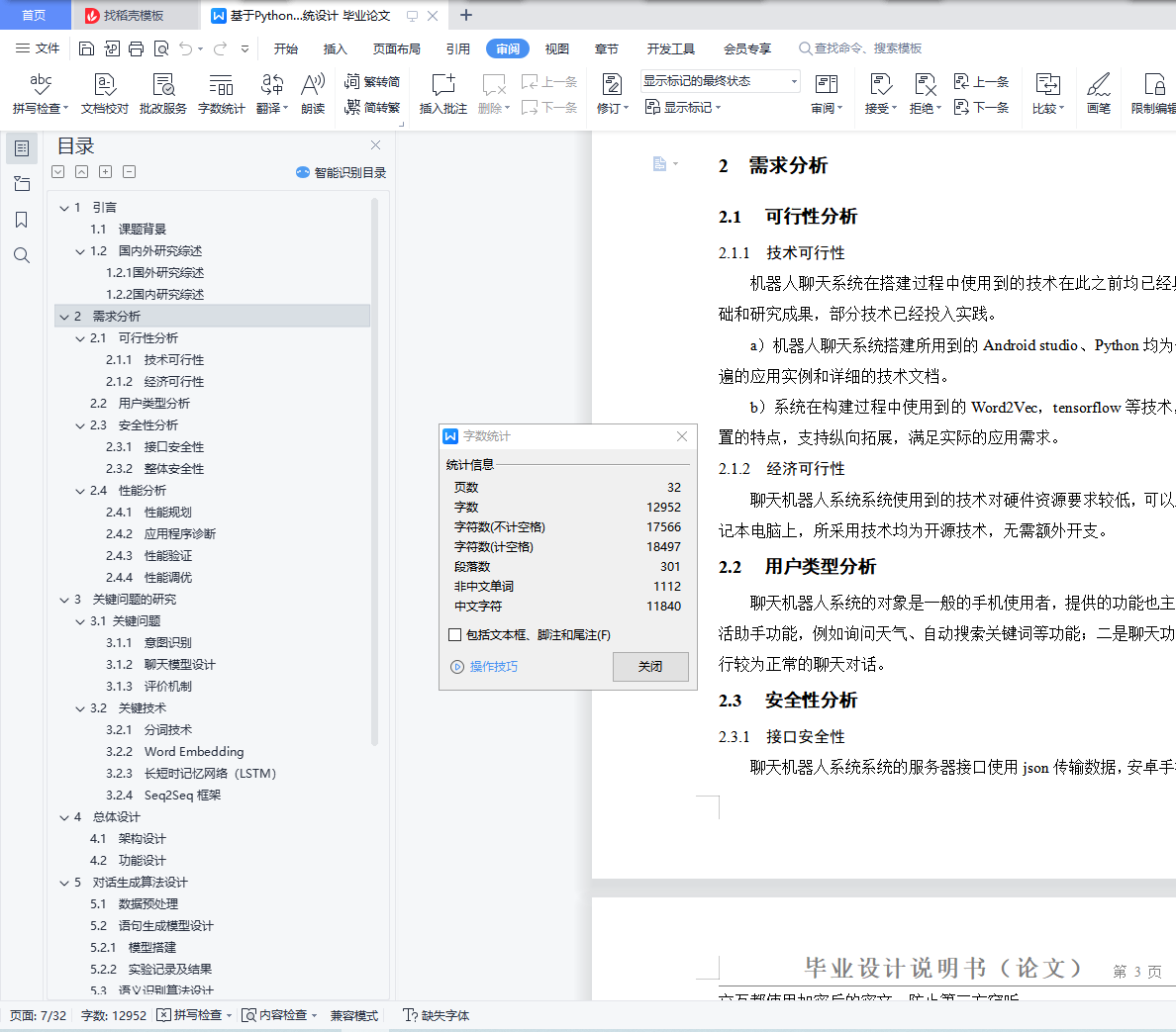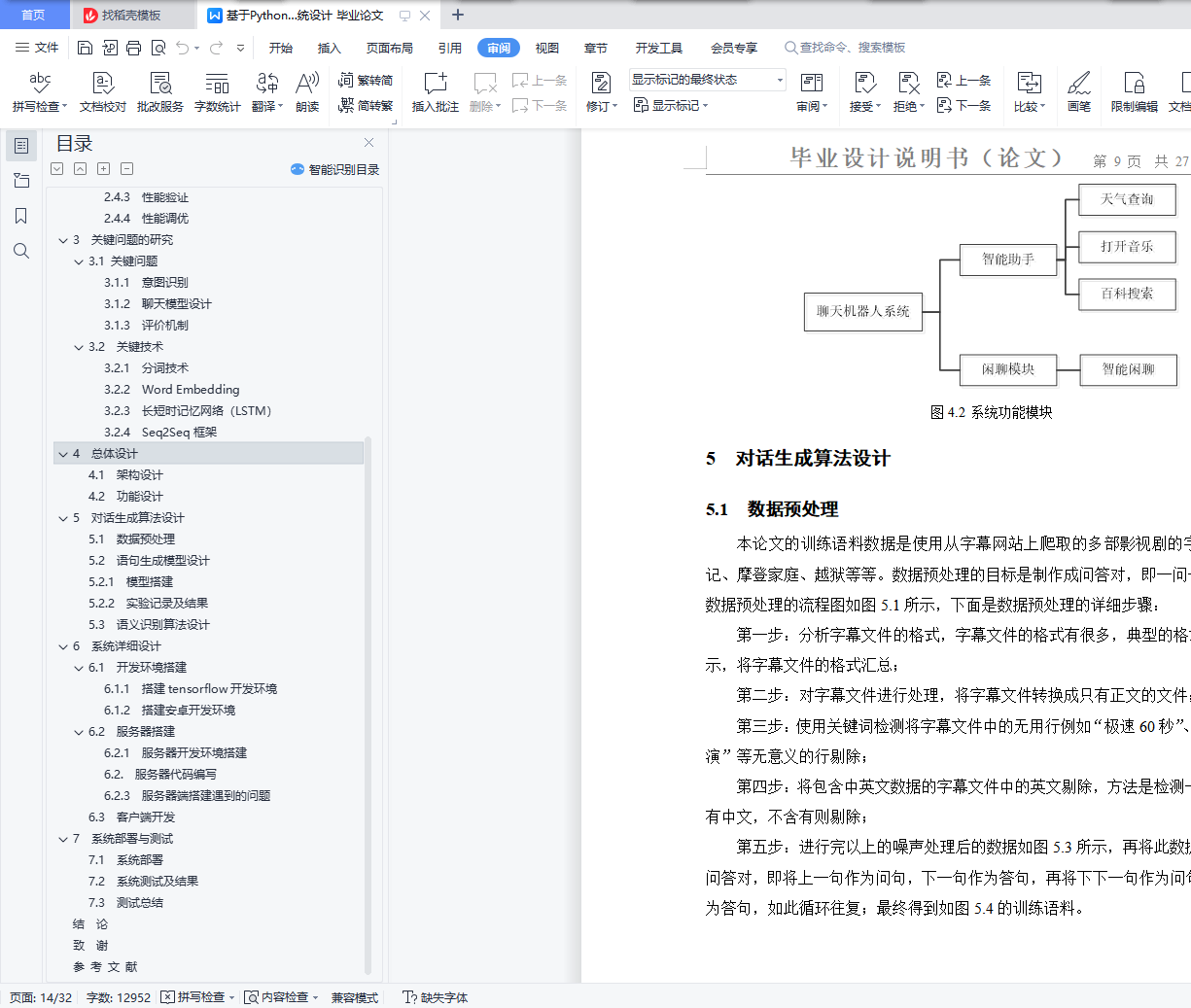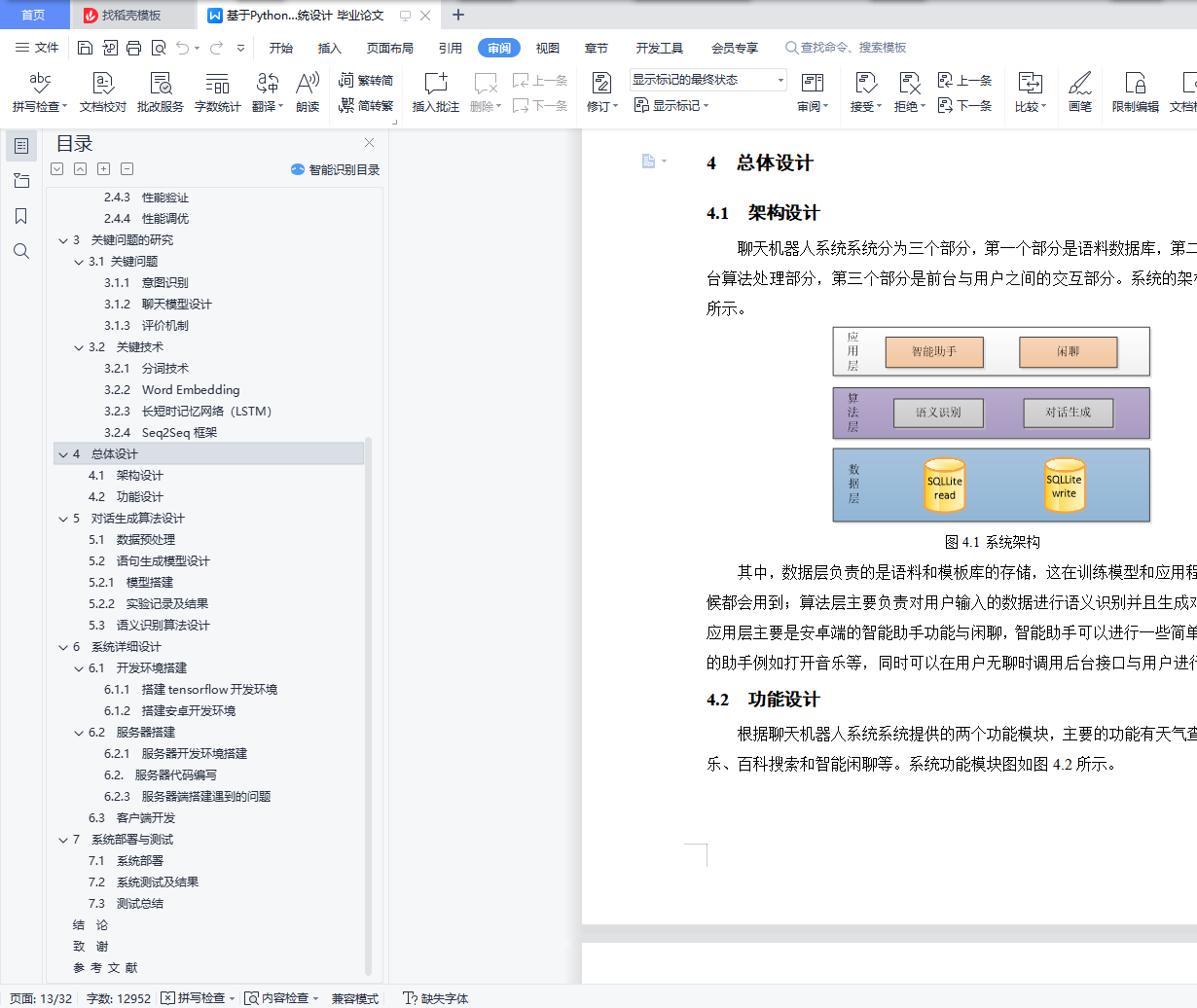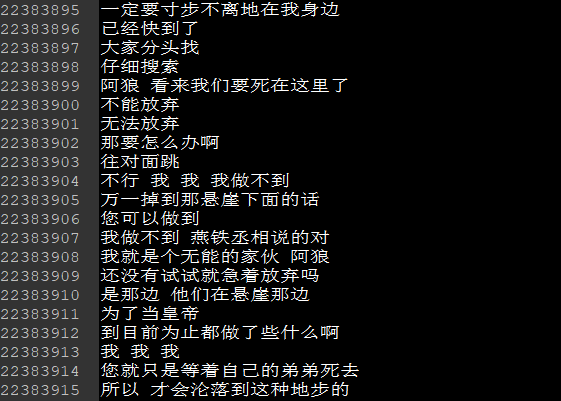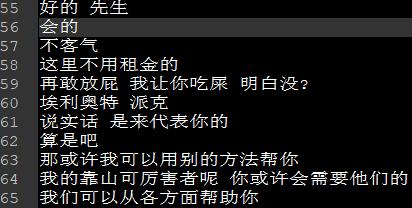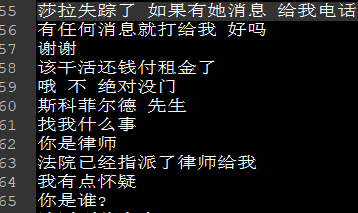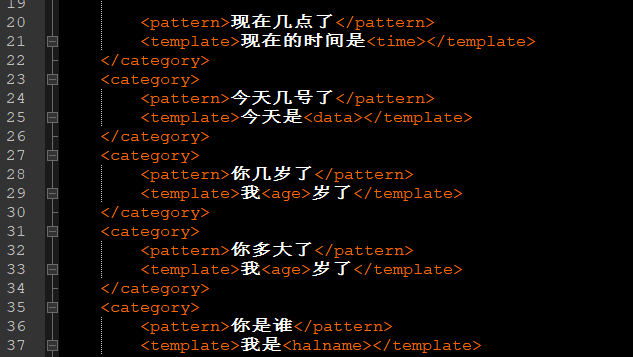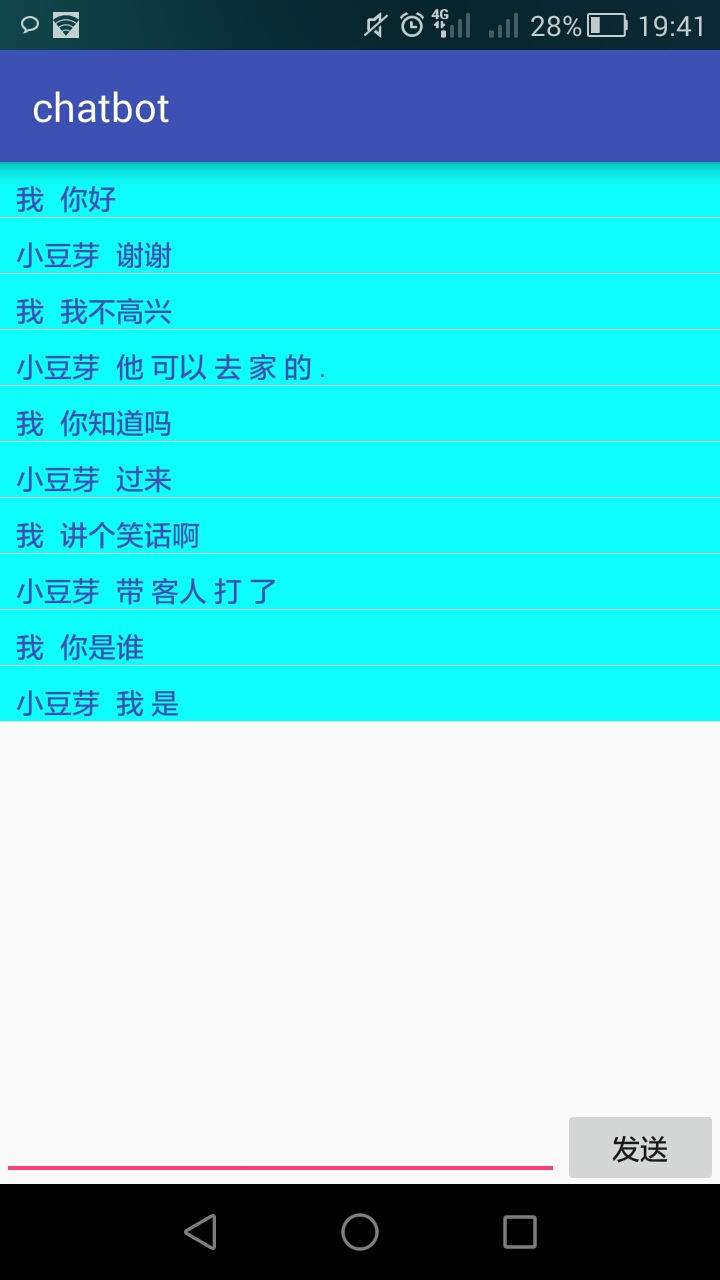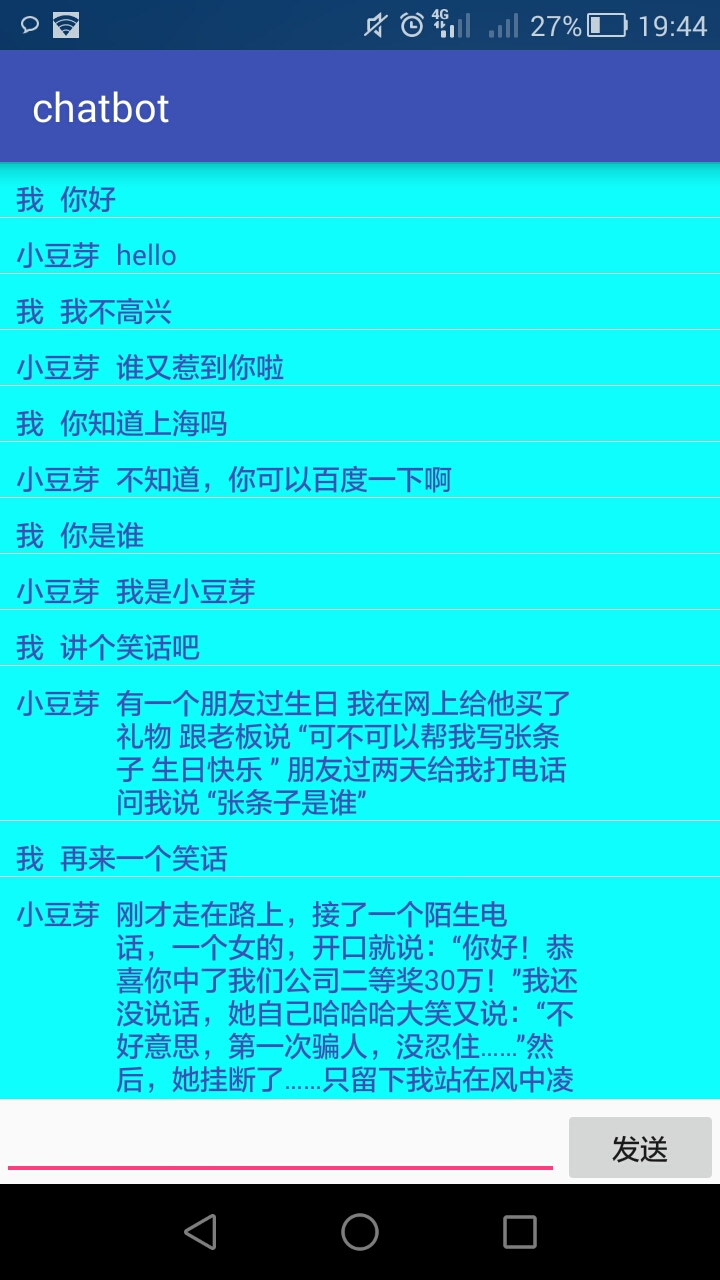基于Python的机器学习的聊天机器人系统设计 毕业论文
毕业设计说明书(论文)中文摘要
随着时代的发展和互联网的不断扩大,手机、电脑已经成为很多人的标准配置,越来越多的人使用电脑、手机办公,无聊的时候使用手机来进行娱乐活动。从按键机到智能机再到现在的云智能,人们对于手机的依赖越来越大,手机的功能也越来越多,人们可以通过手机进行日常事务的处理和获得精神上的满足。
本文制作了一个安卓的聊天机器人系统,可以在做到询问天气、关键词搜索等助手的功能的同时做到与人进行聊天。使用AIML模板技术与基于seq2seq框架的对话生成技术,通过测试,可以与人进行日常的短对话交流。本论文开发了一个基于seq2seq的使用attention的对话生成模型、一个基于python的服务器用作api调用以及一个安卓的客户端。用户可以通过简单的语句输入,获得聊天机器人系统报告的天气、搜索信息以及和机器人进行闲聊等,满足了用户的部分日常需求。
关键词 聊天机器人系统,智能助手,seq2seq,AIML
毕业设计说明书(论文)外文摘要
Title Chat Robot System Design Based
on Machine Learning
Abstract
With the development of the times and the continuous expansion of the Internet, mobile phones and computers have become the standard configuration of many people. More and more people use computers and mobile phones. When they are bored, they use mobile phones for entertainment. From the keymachine to the smart machine to the current cloud intelligence, people are getting more and more dependent on mobile phones and more and more mobile phones. People can handle daily affairs and get spiritual satisfaction through mobile phones.
This article has produced a Android chatting robot. It can chat with people while doing inquiries about the functions of weather, keyword search and other assistants. AIML template technology and dialog generation technology based on seq2seq framework can be used to carry out short dialogues with people through tests. This paper has developed a seq2seq based dialogue generation model using attention, a Python based server as a API call and a Android client. Users can get the weather, search information, and chatting with the robot to meet the user's daily needs through simple input.
Keywords chat robot, intelligent assistant, seq2seq, AIML
目 录
